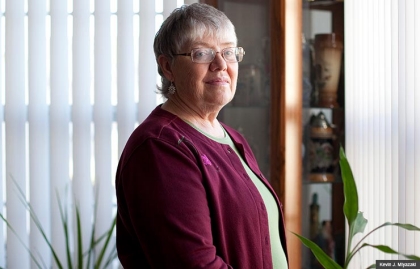AARP Hearing Center

By Daniel Kurt • Like most new retirees, Judith Joslin-Crary made finding affordable medical insurance a top priority when she retired in 2007.
After she and her husband, Richard, explored their options for prescription drug coverage, the Beloit residents were relieved to find that Wisconsin's SeniorCare program could save them a few hundred dollars a year compared to Medicare Part D plans.
"Once you're on a fixed income, you're looking at every place you spend money," said the 71-year-old Joslin-Crary.
SeniorCare, the only state-run program in the nation that serves as an alternative to Part D, provides drug coverage to Wisconsin residents who are 65 years and older. Unlike Part D, the income-based program has no monthly premiums or "doughnut holes" in coverage. Individuals are responsible for copayments of $5 to $15 for each medication and a $30 annual enrollment fee.
Preserve popular programs
"It's nice to have the choice of which works best for them," said Helen Marks Dicks, advocacy director for AARP Wisconsin.
With the 2013-15 budget process about to begin, AARP will be playing an active role in upcoming discussions to make sure SeniorCare and other crucial programs for those 50-plus are protected.
SeniorCare recipients received welcome news in August when Gov. Scott Walker (R) reversed his earlier position and moved to renew a federal Medicaid waiver that would allow the state to operate the program through 2015.
Now, program supporters say, the challenge is to ensure that its funding, eligibility guidelines and scope are not reduced.
In addition to preserving the prescription drug program, AARP Wisconsin is calling on the governor and legislature to pass a budget that will:
- Extend Family Care, a state program that subsidizes home-based care for seniors, into the 15 counties where it is not currently offered, while preserving the level of benefits for current enrollees.
- Protect Wisconsin's pension system by maintaining current benefits for those in or near retirement and preserving the defined-benefit model for future state employees.
- Restore "provider of last resort" telephone service regulations — eliminated last year — so that people in rural areas where there is no cellphone service will have access to telephones, tele-medicine, and other health and safety programs that many can only receive through their landlines.
Voice your opinions
Before the legislature tackles the governor's budget proposal, a step that typically begins in late spring, residents will have the opportunity to make their voices heard at public hearings throughout the state.
With many retirees feeling the brunt of economic woes, Joslin-Crary believes the government should do all it can to preserve programs for older people.
"We put money into IRAs and 401(k)s, but when 2008 came around, we lost about a third of it," she said. As to the oft-heard advice that investors just "ride it out," for people who are already retired, that is not an option. "There is no 'ride it out' for me," she said.
Daniel Kurt is a freelance writer living in Milwaukee.































































